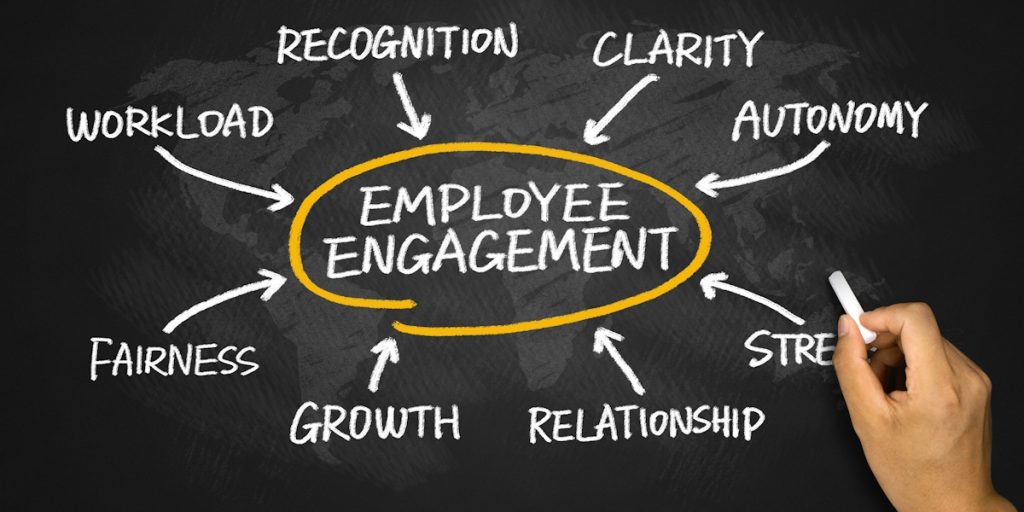Employee loyalty and engagement are two key ingredients to the success of any organization. Businesses that prioritize these factors often experience higher productivity, lower turnover rates, and a more motivated workforce. One powerful way to build loyalty and keep employees engaged is through effective recognition programs. These programs are not just about saying “thank you” or offering occasional rewards. They are about creating a consistent culture of appreciation that fosters long-term commitment and enthusiasm from employees.
In this blog, we will explore how loyalty through recognition can strengthen your team, boost morale, and ultimately improve business performance. We’ll dive into the ways recognition programs contribute to employee satisfaction and why they should be a priority for companies aiming to retain top talent.
Why Recognition Matters for Employee Loyalty and Engagement?
In today’s fast-paced business world, employee turnover is a challenge for many companies. High turnover can disrupt operations, lower team morale, and lead to higher hiring costs. One effective way to counteract this issue is by investing in recognition programs that promote employee loyalty and engagement.
Employee recognition is more than just a “nice-to-have.” It’s a powerful tool that influences both loyalty and engagement. Acknowledging employees’ contributions makes them more likely to stay committed to their work and the company. Recognition helps employees feel valued, which is essential in building long-term loyalty.
Moreover, recognition directly impacts employee engagement. Engaged employees show enthusiasm for their work, commit to achieving organizational goals, and willingly go above and beyond. Regular recognition helps create a positive feedback loop, where employees feel motivated to perform well, and their performance is rewarded in return. This cycle builds a deeper sense of connection and trust between employees and the company.
The Link Between Recognition and Employee Loyalty
Employee loyalty is deeply connected to how appreciated an employee feels. When employees feel like they are making a difference and that their hard work is being acknowledged, they form a bond with the company. This emotional connection helps reduce turnover and keeps employees engaged in their roles for longer.
Loyalty isn’t built overnight. It’s the result of consistent actions that show employees they matter. Recognition programs provide that regular acknowledgment, which builds trust and loyalty. Employees are more likely to stay with a company that shows they value their contributions.
Recognition helps employees feel seen and appreciated on a personal level, rather than just as a worker who completes tasks. This emotional connection makes them less likely to seek opportunities elsewhere. Instead, they become more invested in their current job, making them more likely to stay with the organization for the long term.
Recognition Programs Enhance Employee Engagement
Employee engagement is crucial for driving productivity and achieving business goals. Engaged employees show more motivation, creativity, and commitment to their work. Recognition plays a significant role in enhancing employee engagement by making employees feel that their efforts matter. When employees feel recognized, they are more likely to take initiative, contribute ideas, and stay focused on their work.
Engagement isn’t just about offering rewards; it’s about creating a culture where employees feel emotionally connected to the company’s mission. Recognition programs help foster this connection by showing appreciation for employees’ hard work and achievements. The more often you recognize employees, the more connected they become to the company, which in turn fuels higher engagement levels.
Five Ways Recognition Programs Foster Loyalty and Engagement
1. Encourages a Positive Work Culture
One of the most significant benefits of recognition programs is their ability to create a positive work culture. Regularly acknowledging employees for their efforts sets a tone of appreciation and respect throughout the organization. A culture of recognition fosters collaboration, trust, and open communication between team members and leaders. This positive environment not only motivates employees but also helps create a supportive atmosphere where employees feel comfortable sharing ideas and contributing to the team’s success.
A positive work culture encourages employees to bring their best selves to work every day, knowing their contributions will be valued. This creates a sense of belonging and helps them feel more emotionally invested in the organization’s success. Over time, this culture of recognition becomes self-reinforcing, as employees continue to support and uplift each other.
2. Increases Employee Motivation
Motivation is key to high performance. Recognition programs provide employees with the motivation they need to stay focused and work toward achieving company goals. Recognizing employees boosts their confidence and inspires them to keep striving for success. This sense of achievement drives them to take on new challenges and perform at their highest potential.
Recognition doesn’t have to be extravagant to be effective. A simple acknowledgment of an employee’s hard work can go a long way in increasing motivation. Over time, these small gestures of appreciation build up and encourage employees to continue giving their best.
3. Reduces Turnover and Retention Costs
Employee turnover is costly for businesses, both in terms of financial resources and time spent hiring and training new staff. Recognition programs play a significant role in reducing turnover by making employees feel valued and appreciated. Recognizing employees’ efforts makes them less likely to look for other job opportunities. Retaining experienced and loyal employees not only saves money but also helps maintain a high level of expertise within the organization.
By prioritizing employee recognition, companies can create a more stable workforce, reducing the need to constantly hire and train new employees. This continuity helps maintain a strong company culture and fosters long-term relationships with employees.
4. Boosts Job Satisfaction and Well-Being
Recognition closely links to job satisfaction. Employees who feel appreciated for their hard work are more likely to enjoy their roles and feel fulfilled in their careers. Recognition programs help employees understand that their contributions are meaningful, which leads to a greater sense of pride in their work. This increased job satisfaction not only improves employees’ well-being but also enhances their overall quality of life.
By making recognition a regular part of the workplace culture, companies can help ensure that employees feel supported and valued in their roles. This contributes to a healthier, more positive work environment where employees feel motivated to perform at their best.
5. Strengthens Team Collaboration
Recognition programs also play a key role in promoting teamwork and collaboration. Recognizing employees for their contributions helps them feel more connected to their team members. Recognition builds a sense of camaraderie and fosters an environment that encourages collaboration. When employees work together and recognize each other’s efforts, it enhances the team dynamic and creates a stronger, more cohesive group.
This culture of appreciation not only benefits individual employees but also strengthens the entire team. When leaders support and value their teams, the teams are more likely to work together to achieve company goals, driving higher performance and success.
Conclusion
Loyalty through recognition is more than just a strategy for keeping employees happy—it’s an essential part of building a thriving, productive workforce. By investing in recognition programs, businesses can foster a positive work culture, increase employee motivation, reduce turnover, and create a more engaged workforce. Recognition programs are one of the simplest yet most powerful tools for building lasting loyalty and boosting employee engagement. If your company isn’t already prioritizing recognition, now is the perfect time to start.
Leaders can implement a culture of recognition to create happier, more motivated employees who are committed to the organization’s success. n the long run, this contributes to business growth, improved performance, and a strong competitive edge.




